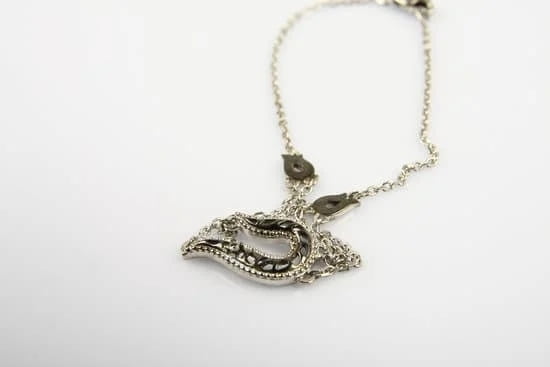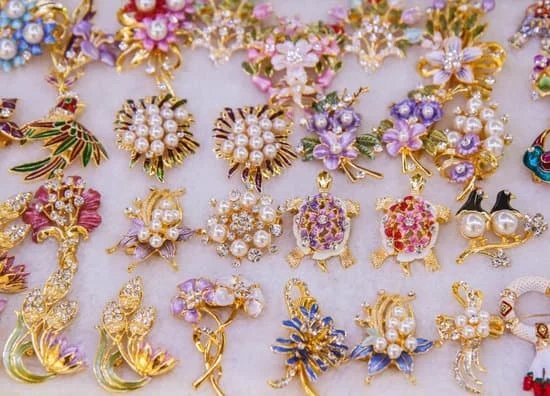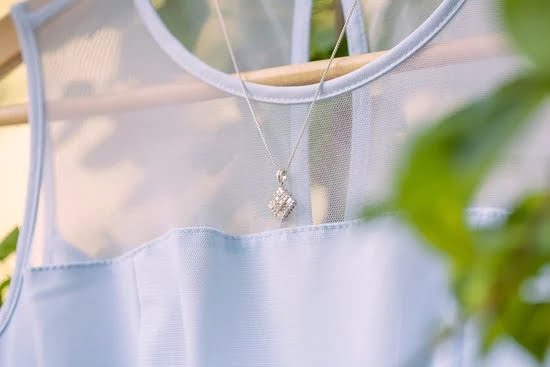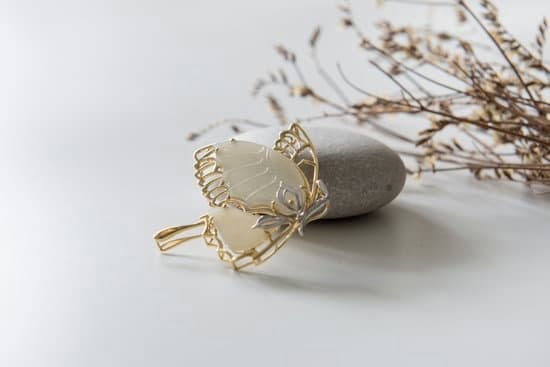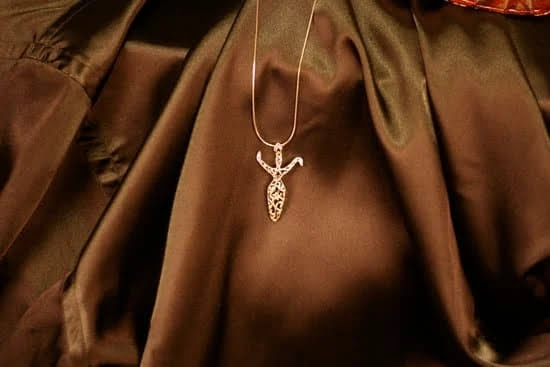Introduction
No, you should not soak your jewelry in hydrogen peroxide. While this chemical can be used to clean some jewelry, using it comes with risks that could damage or discolor your jewelry. Hydrogen peroxide is a great cleaning agent, but it must be done safely and responsibly if you are going to use it on your valuable pieces.
Using hydrogen peroxide incorrectly can lead to the discoloration of precious metals and gemstones, as well as remove patina from antique pieces, which would raise its value significantly lower. Therefore, it is important to take caution when using hydrogen peroxide for cleaning any type of jewelry. First and foremost, always make sure to dilute the solution with distilled water at a ratio of 3:1 to ensure that the beads and metals do not become damaged.
Also keep in mind that different metals may react differently when exposed to hydrogen peroxide. When dealing with sterling silver and gold (plain or alloys) you would best use a 6% hydrogen solution with water. When dealing with more delicate metals, like silver-plated items or costume jewelry pieces, use an even weaker solution of 1% concentration level – 1 part hydrogen peroxide and 8 parts distilled water.
Finally, no matter what kind of cleaning agent you use – whether it be water solutions or ultrasonic machines – ensure that each piece has been thoroughly rinsed of any detergent before returning it back into rotation in order to prevent any reactions that could occur with acid residues still attached. All of these precautionary steps should help guarantee that whatever piece is restored will look good again in no time!
Overview of Properties of Hydrogen Peroxide
Hydrogen peroxide is a chemical compound made out of the elements hydrogen and oxygen. It has both oxidizing and bleaching properties when applied to certain materials or surfaces, making it a popular choice for cleaning and disinfecting. Hydrogen peroxide is available in concentrations ranging from 3 % to 70%, with the higher concentrations used mainly in industrial settings. It can be used on a variety of materials including fabrics, surfaces, skin, hair, and teeth. Some people have even started using hydrogen peroxide to clean their jewelry as well.
When using hydrogen peroxide on jewelry, it’s important to be mindful of the concentration that you are using. The higher concentration of hydrogen peroxide will create more aggressive oxidation effects on the surface it is applied which could potentially damage any precious stones or metal plating that may be present. A strength between 3%-30% should suffice for every day uses such as cleaning off dirt or grime from jewelry without being too harsh on any components within them. Additionally, you should avoid submerging your jewelry completely into a solution for extended amounts of time since this could also cause unnecessary harm or potential rusting or discoloration if left too long.
What Kinds of Jewelry are Safe to Soak in Hydrogen Peroxide?
It is generally safe to soak sterling silver and gold jewelry in hydrogen peroxide, with some caveats. Because of its oxidizing properties, hydrogen peroxide may wear down your jewelry’s finish by discoloring it or corroding metal components. Additionally, fragile stones such as opals, pearls and turquoise should not be soaked because the chemicals may compromise their delicate structures. Before soaking any piece of jewelry in hydrogen peroxide, it is important to check for any metal components that can rust or corrode with the oxidizing agent. Avoid soaking plated jewelry, such as those with a rhodium plate, since exposed metal underneath may erode quickly. White gold rings often have a platings of rhodium over them, meaning they will need more careful monitoring when cleaning. Other metals such as titanium and stainless steel are not affected by hydrogen peroxide. Jewelry that contains soft stones like diamonds must also be handled with care when submerged in hydrogen peroxide because the intense bubbling may cause damage to particularly sensitive pieces.
Benefits of Soaking Jewelry in Hydrogen Peroxide
Soaking jewelry in hydrogen peroxide can be beneficial in a few ways. First, it can help to clean and sanitize jewelry that you wear regularly or rings and necklaces that may have seen more wear than usual. Because hydrogen peroxide is an antibacterial agent, it can also help prevent bacteria from growing on the jewelry while it soaks. In addition to being antibacterial, hydrogen peroxide can help remove excess oils and dirt from the jewelry surface, as well as any tarnish that may have built up over time. When used properly, soaking your jewelry in a solution of hydrogen peroxide will make it look shiny and new again. Another benefit of soaking jewelry in hydrogen peroxide is that it helps protect against dirt buildup over time, making your jewelry last longer. Finally, when used correctly, this process is safe for both skin and metal surfaces.
Potential Hazards of Using Hydrogen Peroxide on Jewelry
While it may be tempting to use hydrogen peroxide as a cleaner for jewelry, it is important to note that this chemical can potentially cause damage. Metal jewelry in particular can react with hydrogen peroxide and weaken over time, especially in the presence of heat. Engraved details on silver, gold and other metal pieces can easily become faint if the jewelry is repeatedly submerged in hydrogen peroxide for long periods at a time. Similarly, gemstones set into the metal can become discolored or brittle if exposed to too much of this cleaning compound. As such, it is generally recommended to stick with more gentle, specialized cleaners for jewelry instead of hydrogen peroxide.
Best Practices for Cleaning Jewelry with Hydrogen Peroxide
The first and most important thing to keep in mind when using hydrogen peroxide to clean jewelry is that it should never be used full strength. Always use a diluted solution, preferably one that contains certified food grade hydrogen peroxide and not the white, 3% hydrogen peroxide you can buy from any drugstore. Using a bottle of 3% Hydrogen Peroxide could result in discoloration or damage to the metal. Diluting your hydrogen peroxide well should reduce the risk of this happening.
Mix one part food grade hydrogen peroxide with five parts water, creating a 6% solution. Stir the mix well until blended together. Place your jewelry into this solution and let it sit for no more than 10 minutes, then rinse it off with cool running water. After this rinse comes off, you want to dry the jewelry with a cloth. You may decide to go back and polish the metal once dry if desired.
Keep in mind that soaking in Hydrogen Peroxide works best on metals like Platinum, Gold, Silver and Palladium although it can also be used on ceramic items as well as other materials including wood pieces with metal parts or accents attached to it (bear in mind though that certain materials such as stones may become damaged if soaked too long – always err on the side of caution). Some people also like to add a few drops of natural soap into their solution so their jewelry has an added layer of protection during cleaning. As always, it’s important to use safe practices when working with any chemicals involved with cleaning jewelry at home; make sure to read all ‘on product’ labels for specific instructions for each item you plan on cleaning.
Other Alternatives to Cleaning Jewelry
Yes, you can soak jewelry in hydrogen peroxide but it is best to dilute it first and only use it on white gold and gemstones. To prevent damage to your jewelry, you should avoid soaking it in undiluted Hydrogen Peroxide.
Other alternatives to cleaning jewelry include using mild soap with warm water and a soft cloth, steam cleaning with a professional jeweler, ultrasonic scrubbing, and using a polishing cloth. A mixture of baking soda and water is also effective for removing tarnish. Additionally, materials such as silver polish or special jewelry cleaners can be used if appropriate for the item being cleaned. If in doubt about any of these methods, it is best to seek the advice of a professional jeweler who will be able to advise the best cleaning technique for each individual piece.
Conclusion
It is not recommended that you soak your jewelry in hydrogen peroxide. While it may be an effective cleaner, hydrogen peroxide can cause certain types of soft stones, such as opals and pearls, to become dull and discolored if they are exposed to it for too long or in too concentrated a solution. It can also make gold jewelry brittle. Additionally, some metals may react with the hydrogen peroxide.
Therefore, if you choose to use hydrogen peroxide for cleaning jewelry, it’s essential that you follow the instructions on the packaging carefully and only apply it directly to spots on the jewelry that require cleaning. It is best to avoid immersing your entire piece of jewelry in hydrogen peroxide. Additionally, make sure you rinse off the jewelry thoroughly once complete before polishing it dry with a soft cloth.
Although some people have reported good results from using hydrogen peroxide to clean their jewelry, there are potential risks involved which must be taken into consideration before attempting this type of deep cleaning process. Weighing up the pros and cons before making a decision is recommended – speaking with a qualified jeweler or gemologist could also help you tomake an informed choice about how best to proceed when trying to keep your favorite pieces looking new and sparkling!

Welcome to my jewelry blog! My name is Sarah and I am the owner of this blog.
I love making jewelry and sharing my creations with others.
So whether you’re someone who loves wearing jewelry yourself or simply enjoys learning about it, be sure to check out my blog for insightful posts on everything related to this exciting topic!

